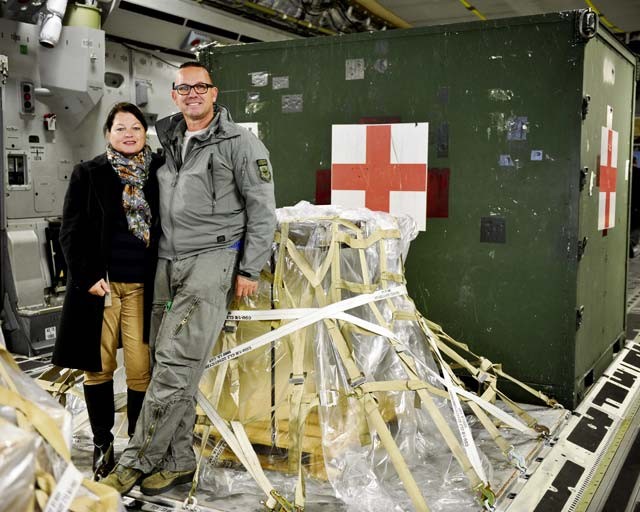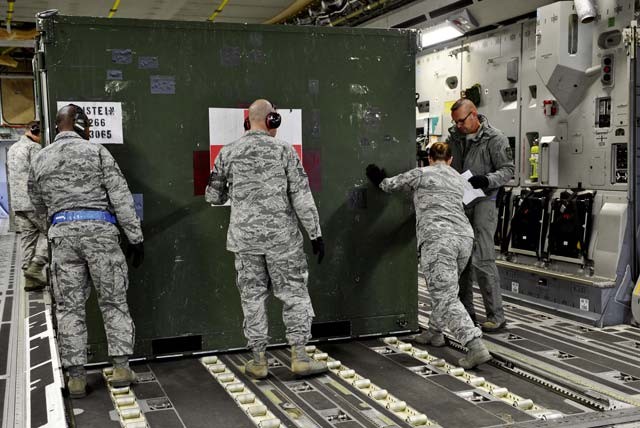
Cheers of happiness and celebration filled the 721st Aerial Port Squadron when one of their aerial porters reached a significant milestone in his career Oct. 16 on Ramstein.
Kasper Chevalier, 721st Aerial Port Squadron aerial porter and native of the Netherlands, reached his 2,000th aerial port expeditor, or APEX, cargo load.
In 2010, after working for the Air Force for only two years, he reached his 500th APEX milestone and only a year later reached 1,000.
“When you talk to Kasper, you get the ‘Excellence in All We Do’ feel from him,” said 1st Lt. Denver Barrows, 721st APS ramp services officer in charge. “He definitely loves the mission, loves the Airmen and is always striving for process improvements for the mission and personnel.”
The APEX mission is one of Air Mobility Command’s velocity initiatives, created as a way to expedite cargo loading without the presence of loadmasters. APEX is unique in the sense that the cargo loaders are not traditional loadmasters; they are aerial transporters that are hand-picked to attend a three-week course to learn the APEX mission.
Chevalier is one of the few APEX personnel who are qualified on both the C-17 Globemaster III and the C-5 Galaxy aircraft. His dual training and the APS personnel have helped him reach this significant moment in his career, according to Chevalier.
“My work is my hobby,” Chevalier said. “I hope to be a motivator and show my enthusiasm and motivation to those around me and hope they, too, will recognize that this is the coolest job ever.”
APEX-qualified personnel save the Air Force time and money by doing the downloading and uploading of cargo while the assigned aircraft personnel are on crew rest or performing other pre-flight duties. They are out doing the job while the others are accomplishing other tasks so the aircrew can expedite the alert to takeoff process.
Cargo can range from large vehicles to medical equipment. Loadmasters and APEX personnel are trained on specific qualifications and have a very small margin of error to work with.
“Our intentions are to develop Airmen’s qualifications that will ultimately lead to them being considered for the program. We only send our very best to APEX training,” Barrows said. “There are very few slots a year to attend the specialized training, and we rely heavily on evaluators like Kasper to help us determine who we choose.”
Chevalier said he plans to continue to train and mentor the Airmen around him.
“This is not a one-man show; it is all about the team,” Chevalier said. “I can’t push pallets by myself. It is truly an honor to help take care of American aircraft, cargo and Airmen.”








